The Hyundai Genesis Coupe's suspension geometry is where the magic happens! Utilizing a 5 link suspension in the rear the Hyundai Genesis Coupe grips around the turns like nothing else.
Front Suspension:
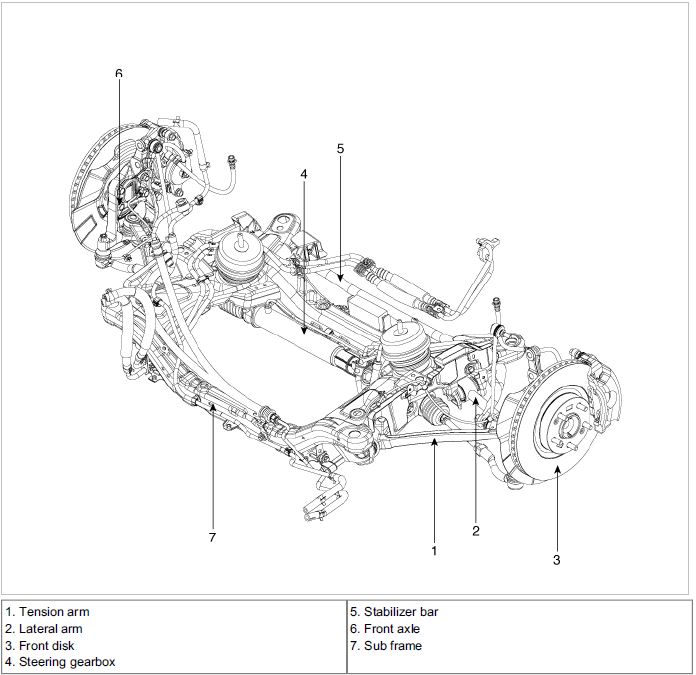
A common performance upgrade for the Hyundai Genesis Coupe is aftermarket suspension. Which requires the removal of the factory suspension struts.
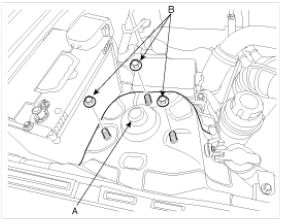
Tightening torque of strut mounting nuts (B) is: 47 lb-ft.
Tension Arm
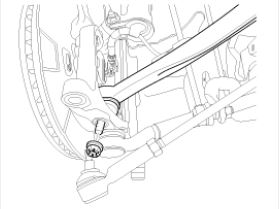
Tightening torque for tension arm to front hub assembly is: 65 lb-ft. and add the split pin.
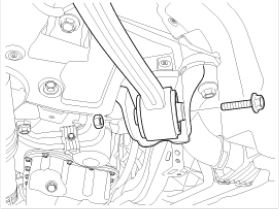
Tightening torque for tension arm to front subframe is: 116 lb-ft
Lateral Arm
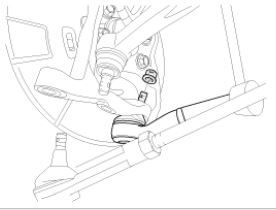
Tightening torque of lateral arm to front hub assembly is 65 lbft.
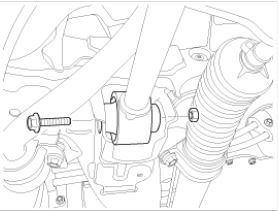
Tightness torque for lateral arm to front subframe is : 116 lb-ft
Sway Bar Link
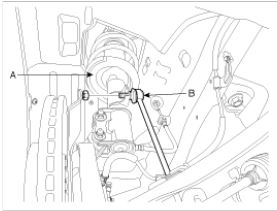
Tightness torque of sway bar link to strut is: 87 lb-ft.
Removing the Power Steering Gear Box:
Drain the power steering fluid.
Loosen the bolt and disconnect the universal joint assembly from the pinion of the steering gear box.
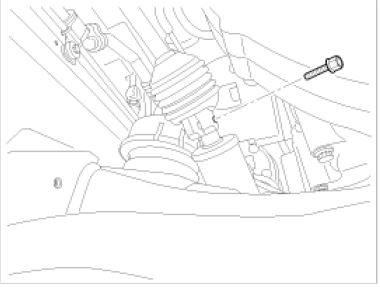 Installation Torque: 18 lb-ft.
Installation Torque: 18 lb-ft.
Remove the cotter pin & loosen the castle nuts at either end connecting the steering rack to the wheel hubs.
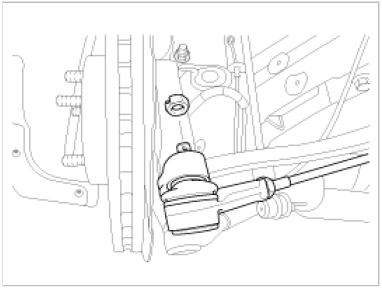 Installation Torque: 58 lb-ft.
Installation Torque: 58 lb-ft.
Remove the tie rod ends from the wheel hubs.
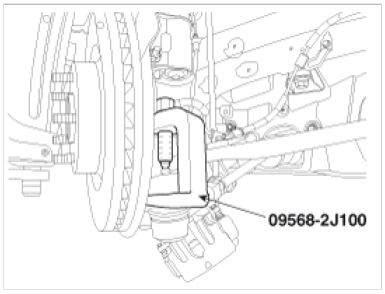
Disconnect the power steering lines to the steering rack.
Remove steering gear box from the cross member by loosening the bracket mounting bolts.
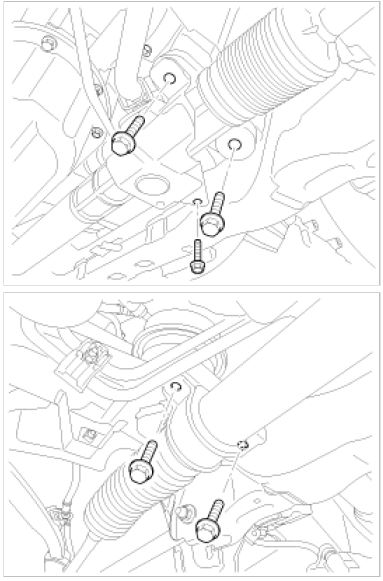 Installation Torque: 58 lb-ft.
Installation Torque: 58 lb-ft.
Front Hub Replacement:
Wheel bearings sometimes go, especially when you race your Hyundai Genesis Coupe. The Genracer team are pros at swapping out front wheel hubs (bearings) on our race cars from over the years so this is a topic we really know!
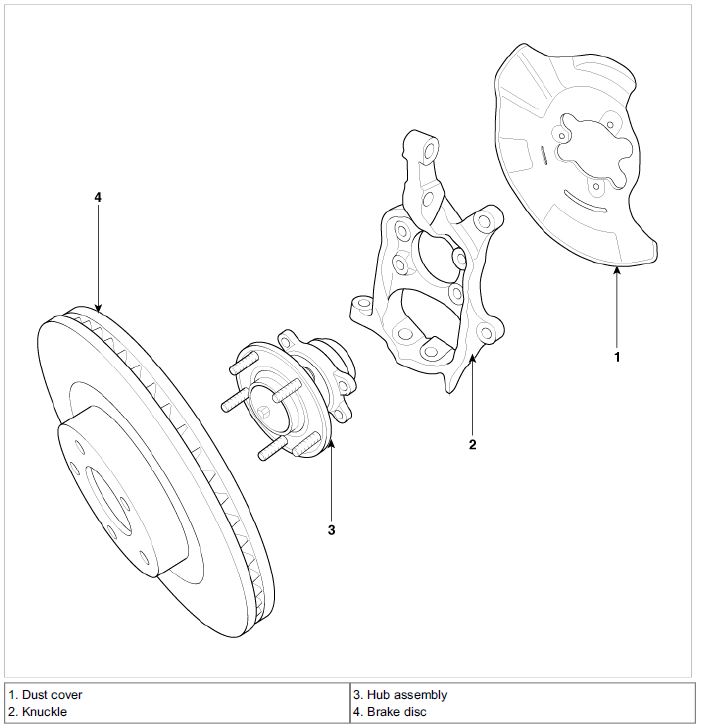
First remove the front caliper.
See our FAQ Brakes section on how to remove the brake calipers.
Once the front caliper is off, with a philips head unscrew the disc brake rotor retaining screws (A).
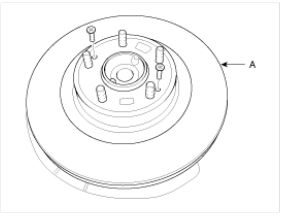
Remove the front disc brake.
Turn the wheel so you have more access to the backside of the front knuckle.
Disconnect the wheel speed sensor that plugs into the back of the front hub and unbolt the four bolts that hold the hub assembly to the knuckle assembly.
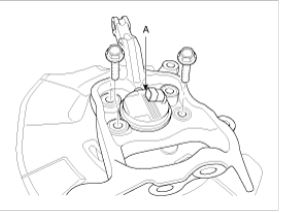 Installation Torque is 72.3 lb-ft.
Installation Torque is 72.3 lb-ft.
These will be tight so a long breaker bar is recommended. The higher the car is in the air the more leverage you will have.
Installation is the reverse.
Rear Suspension:
Always perform these tasks with the car off the ground with zero load on the suspension.
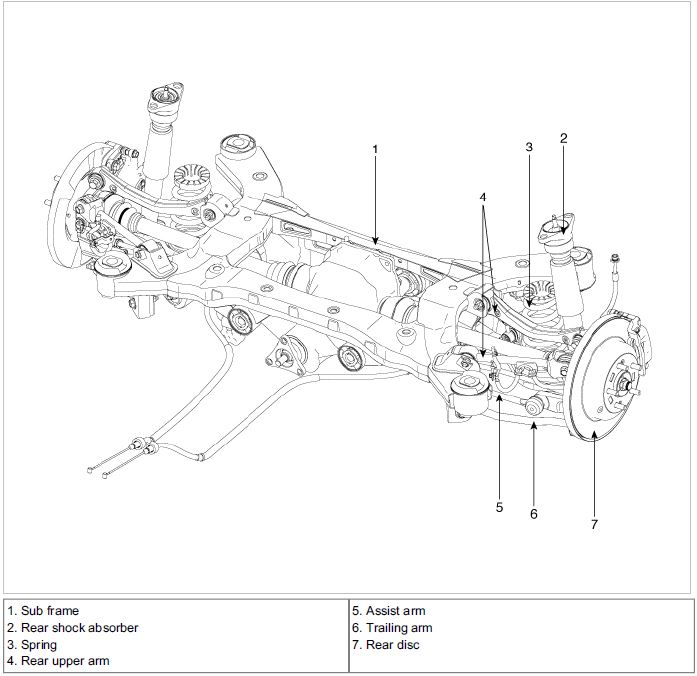
Replacement of Rear Shock Absorber:
Loosen the bolts and nuts and then remove the rear shock absorber from the lower arm.
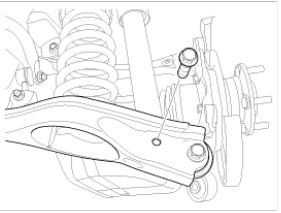 Installation Torque: 116 lb-ft.
Installation Torque: 116 lb-ft.
Loosen the mounting bolts (A).
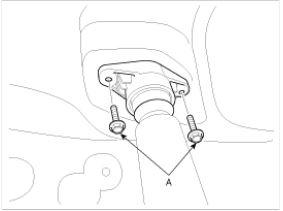 Installation Torque: 43 lb-ft.
Installation Torque: 43 lb-ft.
Front Upper Arm:
Remove brake hose bracket.
Loosen the bolts and remove the front upper arm from the rear hub.
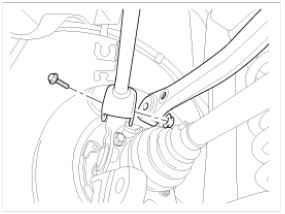 Installation Torque: 87 lb-ft.
Installation Torque: 87 lb-ft.
Now loosen the bolts for the rear upper arm to the subframe.
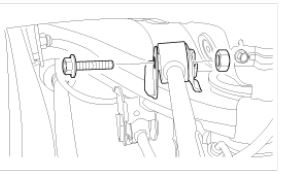 Installation Torque: 87 lb-fts.
Installation Torque: 87 lb-fts.
Rear Upper Arm:
Loosen the bolts that hold the rear upper arm to the rear hub.
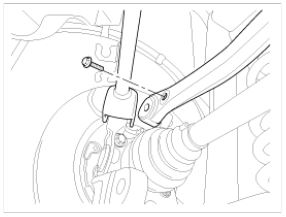 Installation Torque: 116 lb-ft.
Installation Torque: 116 lb-ft.
Loosen the bolts and nut that hold the rear upper arm to the subframe.
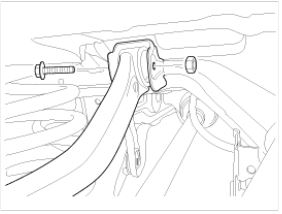 Installation Torque: 87 lb-ft.
Installation Torque: 87 lb-ft.
Rear Lower Control Arm Removal:
Loosen the bolts and nuts and remove the lower control arm from the rear hub.
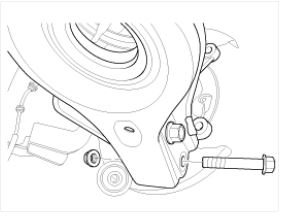 Installation Torque: 116 lb-ft.
Installation Torque: 116 lb-ft.
Loosen the bolt and nut that hold it to the rear subframe.
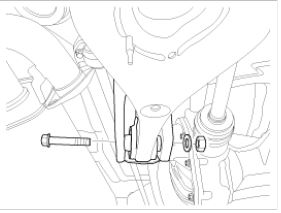 Installation Torque: 116 lb-ft.
Installation Torque: 116 lb-ft.
Removing Rear Stabilizer Bar & Link:
Loosen both sides stabilizer links from the lower control arm by removing the nuts.
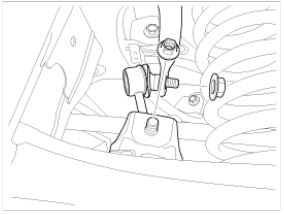 Installation Torque: 87lb-ft.
Installation Torque: 87lb-ft.
Remove the mounting bolts for the stabilizer bar to the chassis.
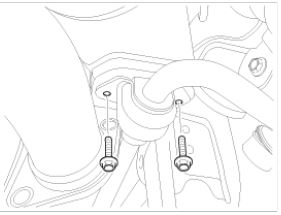 Installation Torque: 47 lb-ft.
Installation Torque: 47 lb-ft.
Rear Assist Arm:
Loosen the nut that connects the assist arm to the rear hub. This is a ball joint and will need a ball joint separator.
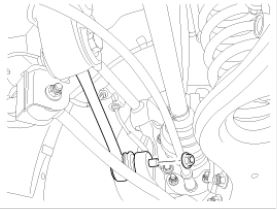
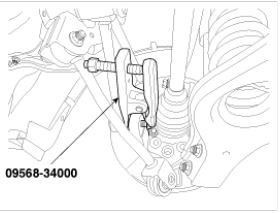
Installation Torque: 87 lb-ft.
Loosen the bolts and nut that hold the assist arm to the subframe.
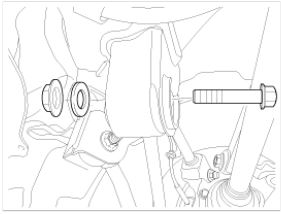 Installation Torque is: 116 lb-ft.
Installation Torque is: 116 lb-ft.
Source: https://www.genracer.com/suspension-1/
Posted by: stephanstephannesine0277981.blogspot.com
Post a Comment